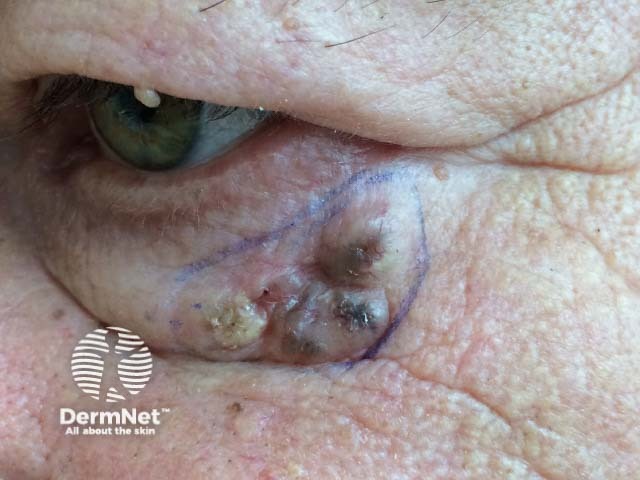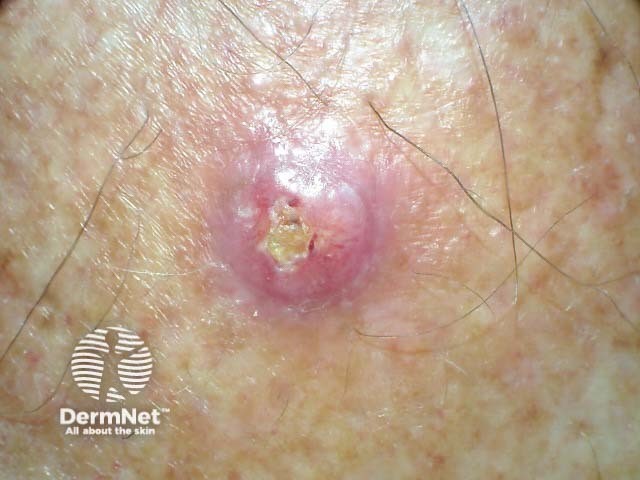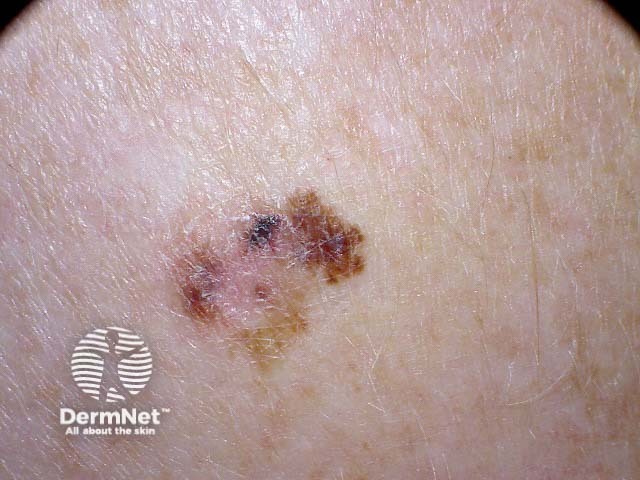Main menu
Common skin conditions

NEWS
Join DermNet PRO
Read more
Quick links
Created 1997. Updated by Dr Emily Ryder, Dermatology Registrar, June 2017.
Introduction
Demographics
Causes
Clinical features
Complications
Diagnosis
Differential diagnoses
Treatment
Outcome
Skin cancers are malignant tumours in which there is an uncontrolled proliferation of any one of the many skin cell types, whereas the normal process of regeneration of skin involves replication of the cells in a controlled fashion. Each subtype of skin cancer has unique characteristics.
The most common forms of skin cancer are:
The term non-melanoma skin cancer refers to all types of skin cancer apart from melanoma. BCC and SCC are also called keratinocyte cancer.

Basal cell carcinoma

Squamous cell carcinoma

Melanoma
Early, superficial skin cancers include:
Many different types of less common skin cancer are listed in the related information section at the bottom of this page.
Skin cancer most commonly affects older adults, but it can also affect younger adults, and rarely, children.
The common forms of skin cancer listed above are related to exposure to ultraviolet radiation (from sunlight or tanning beds) and the effects of ageing. Other risks include:
Some skin cancers are due to genetic conditions, such as:
Skin cancers generally appear as a progressive lump or nodule, an ulcer, or a changing lesion.
Skin cancer can usually be treated and cured before complications occur. Signs of advanced, aggressive, or neglected skin cancer may include:
Skin cancers are generally diagnosed clinically by a dermatologist or family doctor, when learning of an enlarging, crusting, or bleeding lesion. The lesion will be inspected carefully, and ideally, a full skin examination will also be conducted.
The differential diagnosis of skin cancer depends on the specific lesion.
Early treatment of skin cancer usually cures it. The majority of skin cancers are treated surgically, using a local anaesthetic to numb the skin. Surgical techniques include:
Treatment options for superficial skin cancers include:
Treatment for advanced or metastatic basal cell carcinoma may include targeted therapies vismodegib and sonidegib.
Treatment for advanced and metastatic melanoma may include:
Patients with skin cancer may be at increased risk of developing other skin cancers. They may be advised to:
These treatments can lead to adverse effects. See:
Most skin cancer can be completely cured with early treatment. Advanced skin cancers are more difficult to treat and can lead to death.